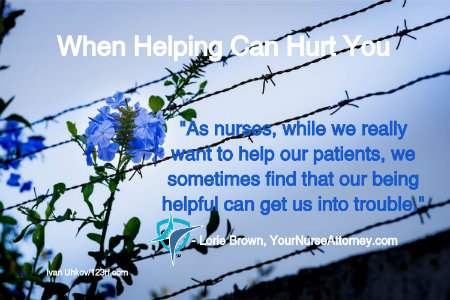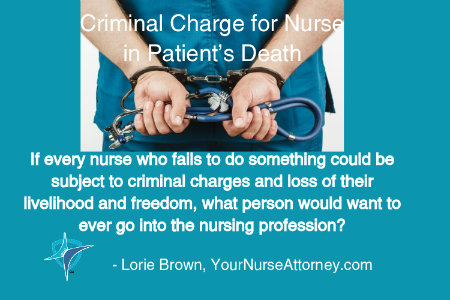As nurses, while we really want to help our patients, we sometimes find that our being helpful can get us into trouble. As you know, we are required to follow tons of rules. We have to watch our professional boundaries to make sure we are not overstepping.
For example, if you work at an assisted living facility where one of your patients needs help getting groceries and you agree to get the items for the patient. This is crossing the line. You are there to provide nursing care and not help the patient with something like that.
I’m aware of what you’re thinking, “You know, I’m just trying to help her out.” But still, that crosses the line and can lead you to trouble.professional boundaries nurses nursing patients
Another scenario is you have a patient who perhaps is constipated and requires Milk of Magnesia. The physician normally prescribes that for all his postop patients but let’s say that, for whatever reason, this order got missed. You go ahead and give the Milk of Magnesia to the patient while fully intending to get an order to cover you.
As much as you wanted to help the patient and relieve their suffering from constipation, this would be practicing medicine without a license.
Don’t fall into the trap; your license is too valuable. It’s a true privilege to be a registered nurse but don’t mess up your career because you felt compassion toward a patient.
Here’s another example: your boyfriend is in pain and you give him one of your own pain medications left over from a surgery you had. As much as you would like to ease his pain, this too is considered practicing medicine without a license.
How about if you were working on a cancer unit and when a patient passes away, the medications are left and not wasted. If you save these for other patients who may not be able to afford these medications, even if ordered, is considered diversion.
If any of these situations cause you concern, I would suggest taking continuing education on ethics and professional boundaries to make sure you are complying with the law. Each one of these nurses thought they were helping people and it turned out to hurt them. Have you run across similar situations? What did you do? I would love to here your thoughts below in the comments.











